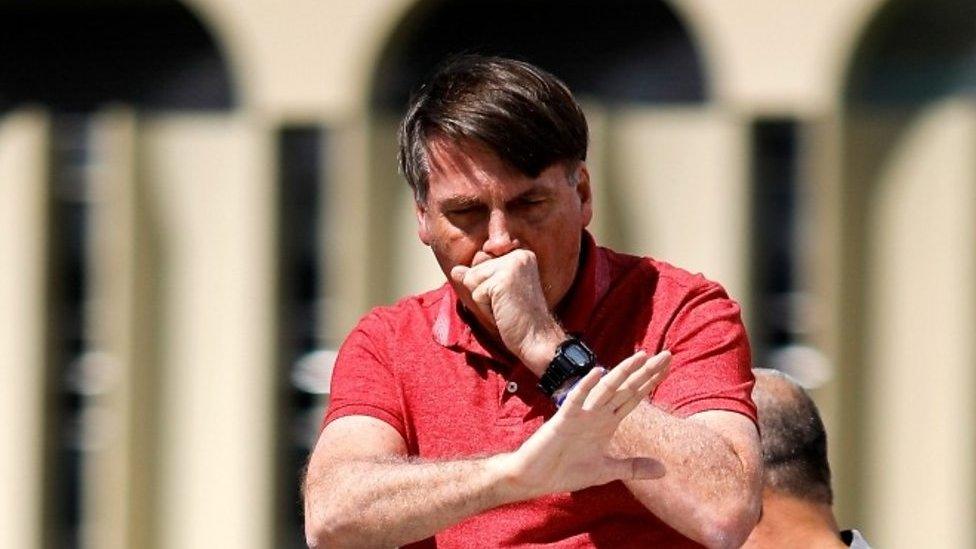Coronavirus: How world leaders adapted to the pandemic
- Published
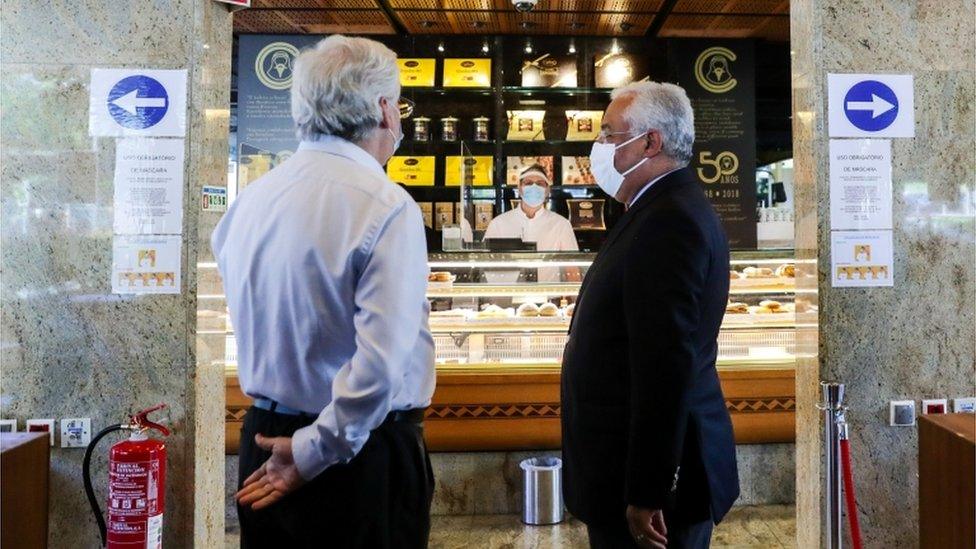
Portugal's PM Antonio Costa (R) has been out and about hinting at normality
The coronavirus pandemic has changed the way people around the world live and work.
From lockdowns to social distancing, most countries have enforced some form of restriction to help prevent the spread of the virus.
So it's perhaps not surprising that some people are taking a while to adapt - even our leaders.
New greetings
As the scale of the health crisis emerged earlier this year, experts warned that close contact with other people could help spread the virus.
Coronavirus: Indian greeting namaste goes global
One of the first noticeable changes was the end of the humble handshake, with some senior figures, from US President Donald Trump to Prince Charles, adopting the namaste greeting instead.
But others had more difficulty getting used to the change.
In March, Dutch Prime Minister Mark Rutte told people they should use alternative greetings to help combat the spread of the virus, before shaking the hand of the official next to him.
"Oh sorry, we can't do that anymore!" he exclaimed as he realised his mistake, and proceeded to bump elbows instead.
Dutch PM tells nation not to shake hands – then does
Working from home
One of the major changes for most people has been the closure of schools and the shift to working from home.
New Zealand's Prime Minister Jacinda Ardern pointed out the difference the new arrangements had made when she hosted a question and answer session on Facebook Live from home in late March.
"Excuse the casual attire - it can be a messy business putting toddlers to bed, so I'm not in my work clothes," she said.
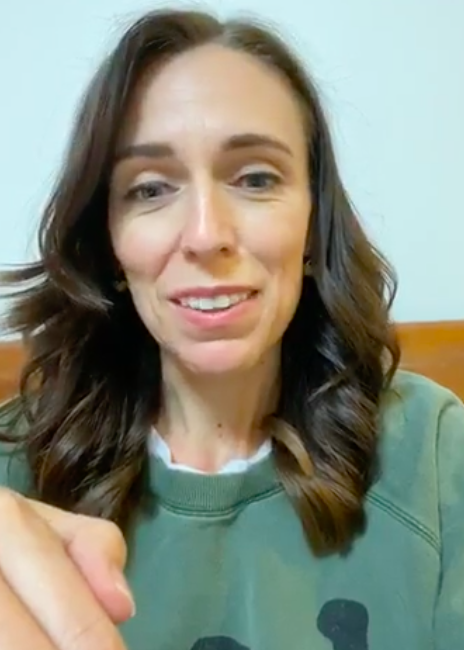
Jacinda Ardern - not in her work clothes

Leaders haven't been immune to some of the more extreme aspects of lockdown life, with Scotland's First Minister Nicola Sturgeon's home haircut documented by her husband.
Allow X content?
This article contains content provided by X. We ask for your permission before anything is loaded, as they may be using cookies and other technologies. You may want to read X’s cookie policy, external and privacy policy, external before accepting. To view this content choose ‘accept and continue’.

Breaking the rules
Elsewhere, some leaders have faced criticism for failing to adhere to the rules they themselves introduced.
Last week, South Africa's President Cyril Ramaphosa found himself in trouble after breaking social distancing measures.
In a video posted online, he can be heard joking with two women who approached him in the street before taking a photo with them.
Allow X content?
This article contains content provided by X. We ask for your permission before anything is loaded, as they may be using cookies and other technologies. You may want to read X’s cookie policy, external and privacy policy, external before accepting. To view this content choose ‘accept and continue’.

The failure of others to comply was less surprising: Brazil's President Jair Bolsonaro has been vocal in his opposition to lockdown measures since the outbreak began.
Nevertheless, he came under criticism last month after he was seen coughing without covering his mouth at an anti-lockdown rally.
From 21 April 2020: The BBC's South America correspondent Katy Watson looks at how Bolsonaro has responded to the virus in Brazil
A new normal?
Just a few months ago, the sight of a group of people drinking coffee together wouldn't have raised an eyebrow.
But after many hospitality and entertainment venues were forced to close across Europe, the sight of Portugal's Prime Minister Antonio Costa holding a meeting outside a cafe in the capital Lisbon on Monday morning hinted towards a return to some kind of normality.
Signs of how the world has changed since the beginning of the year were visible, however, with the cafe's staff wearing face masks, visors and gloves, and tables spaced out to ensure distance between customers.

A SIMPLE GUIDE: How do I protect myself?
AVOIDING CONTACT: The rules on self-isolation and exercise
HOPE AND LOSS: Your coronavirus stories
VIDEO: The 20-second hand wash

- Published6 May 2020
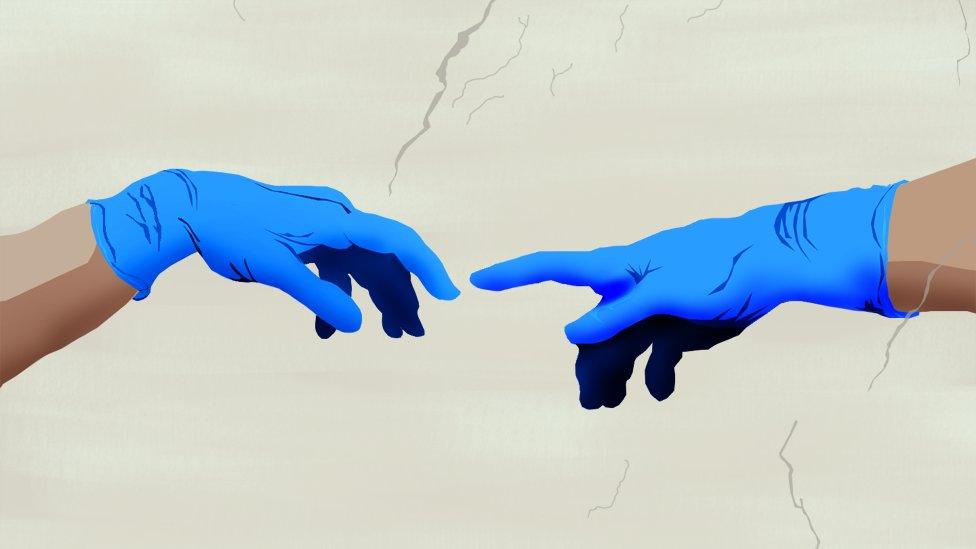
- Published13 March 2020
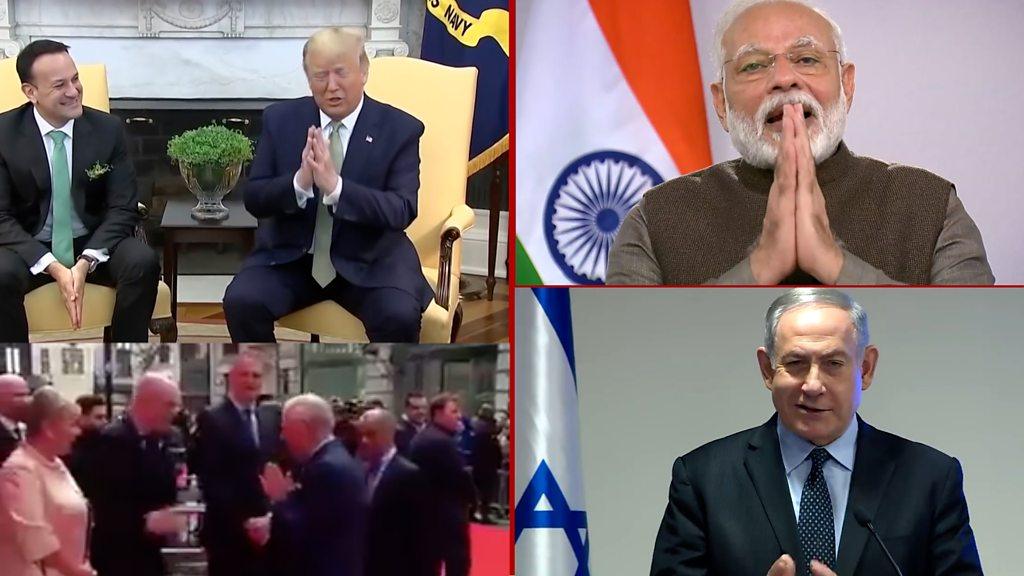
- Published21 April 2020
